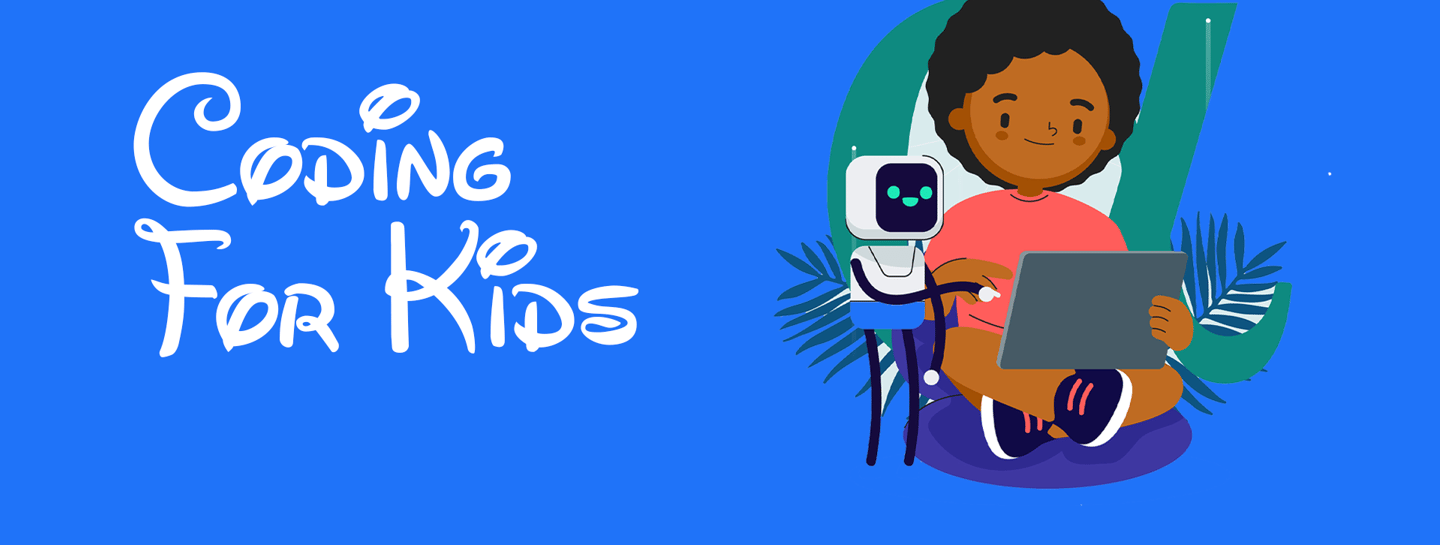5 Reasons Children Should Get Involved in Our Coding for Kids Program
5 Reasons Children Should Get Involved in Our Coding for Kids Program
SPECIAL SUMMER PROGRAMS


Introduction to the Importance of Coding for Kids
In today's rapidly evolving digital landscape, coding has emerged as one of the most essential skills for children to acquire. With technology becoming increasingly integral to everyday life and a myriad of professional fields, early exposure to coding is more crucial than ever. From smartphones and tablets to smart homes and autonomous vehicles, the presence of technology is ubiquitous. As a result, understanding the fundamentals of coding equips children with the tools to navigate and contribute to this tech-centric world.
One of the primary benefits of learning to code at a young age is the enhancement of problem-solving skills. Coding challenges children to break down complex problems into manageable steps, fostering a methodical and logical approach to problem-solving. This skill is not only valuable in a technological context but also translates to various other areas of life, from academic subjects to everyday decision-making.
Coding also encourages creativity and innovation. By engaging in coding activities, children learn to think outside the box, experimenting with different solutions to achieve desired outcomes. This creative process is akin to crafting a piece of art or composing music, where experimentation and iteration lead to the final product. As children develop their coding skills, they gain the confidence to bring their imaginative ideas to life, whether through developing games, creating websites, or building applications.
The importance of early exposure to coding is further underscored by the growing trend of integrating coding into educational curriculums worldwide. Many schools have recognized the value of coding as a foundational skill and have incorporated it into their teaching frameworks. This global shift reflects a broader understanding that coding is not just a technical skill but a form of literacy that prepares children for the future job market and nurtures critical thinking.
In summary, coding for kids is not merely about learning to write code; it is about equipping children with the skills necessary to thrive in a technology-driven world. By fostering problem-solving abilities, creativity, and logical thinking, early exposure to coding lays a strong foundation for their future endeavors.
Enhancing Problem-Solving Skills
In our increasingly digital world, cultivating problem-solving skills in children is essential, and our Coding for Kids program is designed to do just that. Coding inherently involves identifying problems and devising systematic solutions, which helps children develop robust analytical abilities. As they engage with coding tasks, children are challenged to think critically and approach problems methodically, often requiring them to break down complex issues into smaller, manageable parts.
For instance, when children are tasked with creating a simple game, they must first conceptualize the game mechanics, then translate these ideas into a sequence of logical steps. This type of activity demands that they not only foresee potential problems but also devise and implement solutions. Such exercises foster an iterative mindset where trial and error lead to improvement and refinement of their initial ideas.
One common coding activity that exemplifies this is debugging. When children encounter an error in their code, they must systematically identify the source of the problem, test potential fixes, and apply the most effective solution. This kind of problem-solving is not confined to coding alone; the skills children acquire in debugging are highly transferable. Whether in mathematics, where they may need to solve complex equations, or in science, where they might conduct experiments and analyze results, the ability to think critically and solve problems efficiently proves invaluable.
Moreover, these problem-solving skills extend beyond academic applications. In everyday life, children who have learned to code are better equipped to handle challenges. Whether it's organizing their time, planning a project, or resolving conflicts, the structured thinking and perseverance developed through coding provide a strong foundation for tackling real-life situations. By participating in our Coding for Kids program, children gain more than just technical knowledge; they acquire essential life skills that will serve them well into the future.
Boosting Creativity and Imagination
Coding is often perceived as a rigid discipline centered around logic and algorithms. However, it is also a powerful medium for unleashing creativity and imagination. Our Coding for Kids program introduces children to the fascinating world where technology and artistry intersect. By learning to code, children gain the ability to create games, animations, and interactive stories, transforming their imaginative ideas into tangible digital experiences.
For instance, children can use coding platforms like Scratch to design their own animated characters and stories. They can script dialogues, animate movements, and even add sound effects, bringing their narratives to life. This process not only enhances their coding skills but also fosters their artistic abilities and storytelling techniques.
Another example is game development. Children can design and code their own video games, from simple puzzles to more complex adventures. This requires them to think creatively about game mechanics, character design, and user interactions. The process of game creation encourages them to experiment, iterate, and refine their ideas, which is a critical aspect of creative development.
Interactive stories are also a fantastic project for young coders. Using tools like Twine or Tynker, children can create branching narratives where users make choices that affect the story's outcome. This interactive storytelling not only nurtures their creativity but also helps them understand the importance of structure and flow in narrative design.
By participating in our Coding for Kids program, children are empowered to bring their creative visions to life. They learn that coding is not just about writing lines of code; it's about creating something unique and personal. This realization can be incredibly motivating and rewarding, encouraging them to continue exploring and expanding their creative horizons in the digital world.
Building Resilience and Patience
Learning to code is a multifaceted journey that profoundly impacts a child's ability to develop resilience and patience. Engaging with coding projects exposes children to a series of challenges and hurdles, often necessitating multiple attempts to achieve the desired outcome. This trial-and-error process is a powerful teacher of persistence, as it requires young learners to continually refine their approach and problem-solving techniques.
In the world of coding, failure is not an endpoint but a stepping stone to success. When children encounter bugs or errors in their code, they must troubleshoot and debug, fostering a mindset that embraces mistakes as opportunities for learning. This experience is invaluable, as it cultivates not only technical skills but also emotional resilience. Children learn to cope with frustration and develop strategies to manage setbacks, which are essential life skills beyond the realm of coding.
Through consistent practice, young coders begin to internalize the principles of a growth mindset—the belief that abilities and intelligence can be developed through dedication and hard work. This mindset shift is crucial for their overall development, influencing how they approach challenges in various aspects of their lives. For instance, a young learner might initially struggle with a complex coding problem but, through perseverance, ultimately finds a solution. This success story reinforces their belief in their ability to overcome obstacles, further strengthening their resilience.
Consider the case of Emily, a participant in our Coding for Kids program. Initially, Emily found the logic behind loops and conditionals daunting. However, with guidance and persistent effort, she gradually mastered these concepts. Her journey was not without its share of frustrations, but each small victory bolstered her confidence and patience. Emily's experience is a testament to how coding can transform a child's approach to challenges, equipping them with the resilience needed to navigate the complexities of both their academic and personal lives.
By engaging in our Coding for Kids program, children are not just learning to code; they are acquiring essential life skills that will serve them well in the future. The resilience and patience they develop through coding are foundational qualities that will help them face and surmount various challenges, both in their educational pursuits and beyond.
Preparing for Future Careers
In today's rapidly evolving job market, possessing coding skills has become increasingly essential. Knowledge of coding can significantly enhance career prospects, offering a gateway to a multitude of high-demand professions across various industries. From software development and data analysis to artificial intelligence and cybersecurity, the range of opportunities available to individuals proficient in coding is vast and continually expanding.
The demand for tech skills is exceptionally high, with businesses across all sectors seeking employees who can navigate the digital landscape. Tech-centric roles are not only abundant but also lucrative, often offering competitive salaries and robust career growth potential. For instance, according to numerous industry reports, jobs in software development, data analytics, and cybersecurity rank among the highest-paying positions in the job market today.
Early exposure to coding can provide children with a substantial competitive edge. By engaging with coding from a young age, children develop critical thinking, problem-solving, and analytical skills that are highly valued by employers. These foundational skills can position them favorably when they enter the workforce, making them adept at tackling complex challenges and innovating within their chosen fields.
There are numerous inspiring stories of individuals who have achieved remarkable success after starting to code at a young age. Notable examples include tech entrepreneurs and innovators who have revolutionized industries and created groundbreaking technologies. These stories underscore the profound impact that early coding education can have on a person's career trajectory, fostering a mindset of creativity, resilience, and continuous learning.
Therefore, enrolling children in our Coding for Kids program is an investment in their future. It equips them with the essential skills needed to thrive in an increasingly digital world, opening doors to exciting and high-paying career opportunities. By nurturing their interest in coding now, we are helping to prepare the next generation of tech leaders and innovators.
Fostering Collaboration and Teamwork
Coding projects frequently necessitate teamwork and collaboration, making them an excellent medium for children to develop essential social skills. In our Coding for Kids program, children are encouraged to work together on various coding assignments. This collaborative environment nurtures their ability to share ideas, solve problems collectively, and communicate effectively. By working in teams, children learn the importance of cooperation and develop a sense of camaraderie, which is vital in both academic and professional settings.
For instance, one of our popular activities involves group coding challenges where children must design and implement a simple game or application. Each team member takes on a specific role, such as a graphic designer, coder, or project manager. This division of labor not only makes the project more manageable but also allows children to understand the importance of each role in the successful completion of a project. Through these activities, they learn to appreciate diverse perspectives and skills, fostering an inclusive and supportive team dynamic.
Another collaborative activity we incorporate is pair programming, where two children work together at one workstation. One child writes the code while the other reviews each line, providing immediate feedback and suggestions. This method enhances their problem-solving skills and ensures that both participants are actively engaged in the learning process. It also teaches them to value constructive criticism and to be open to different approaches to solving a problem.
Moreover, children regularly participate in coding hackathons, where they collaborate with peers to build innovative solutions within a limited timeframe. These events teach them to work under pressure, manage their time efficiently, and think creatively. The necessity of effective communication and coordination in such settings helps them develop strong interpersonal skills, which are crucial for future success.
In summary, our Coding for Kids program emphasizes the significance of teamwork and collaboration, enabling children to develop vital social skills while engaging in exciting and educational coding projects. By working together, they not only enhance their technical abilities but also build lasting relationships and a strong foundation for future collaborative endeavors.




